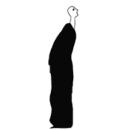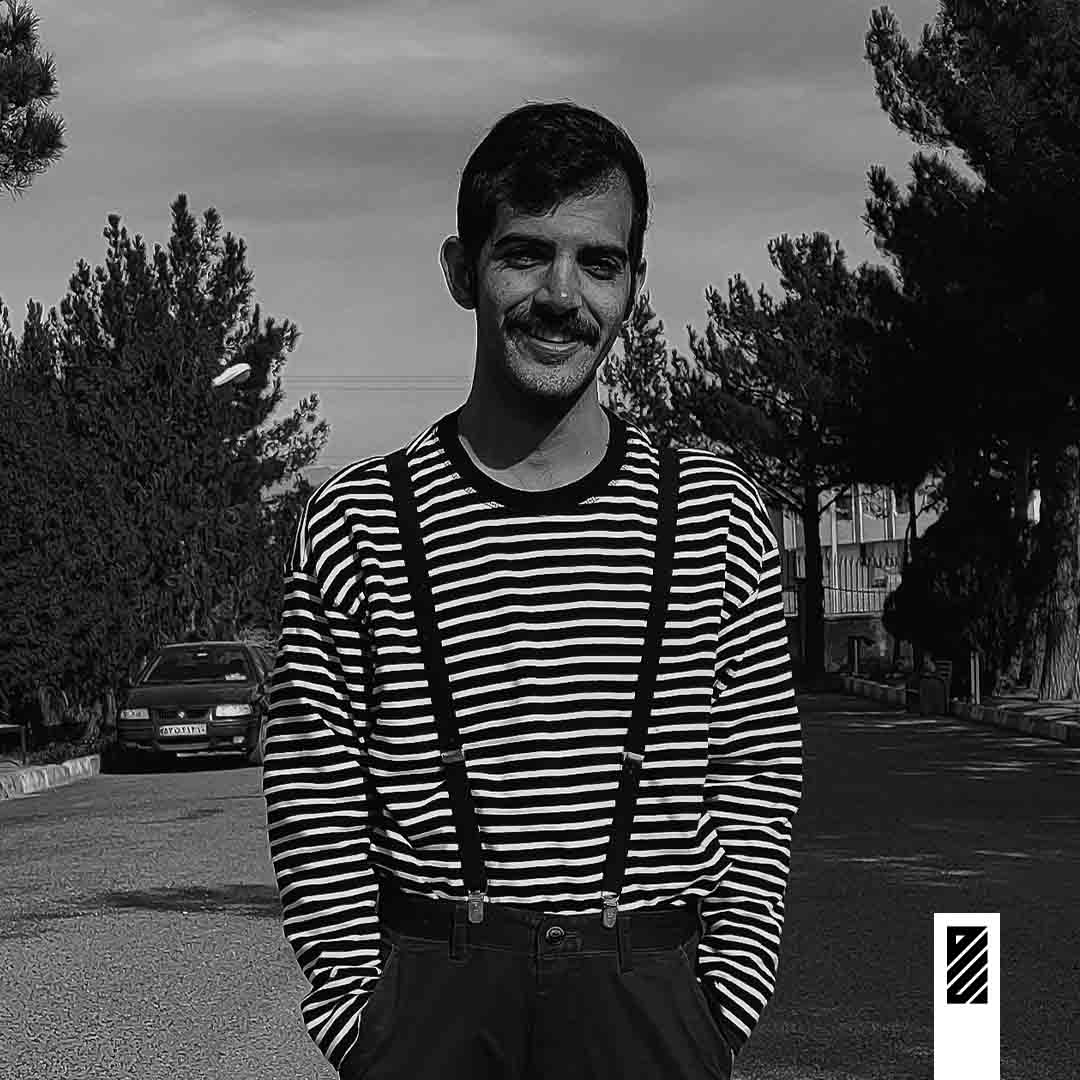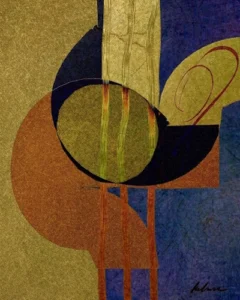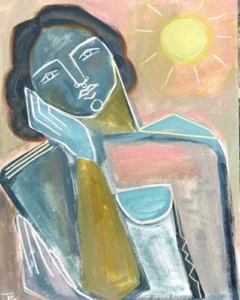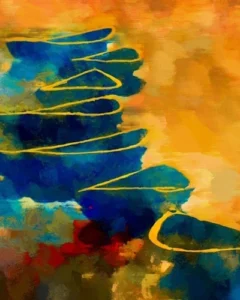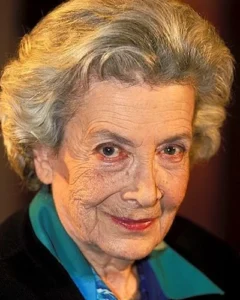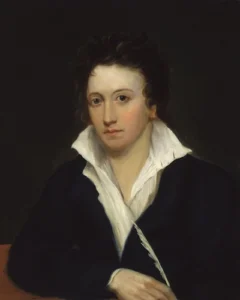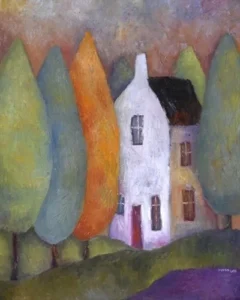شورش علیه شعر | آنتونن آرتو
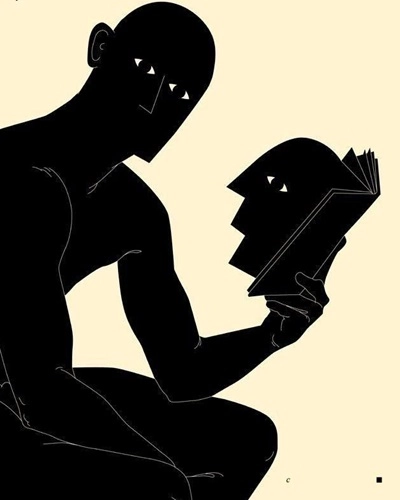
شورش علیه شعر
ما هیچگاه به نوشتن روی نیاوردهایم که با تجسم جان توأمان نبوده باشد و این هیچگاه به دست خودمان نبوده است، هرچند پیشتر، این امر هنگامی که به وادی شعر وارد شدیم، رخ داده بود.
شاعر به وقت نگاشتن دست به دامان واژه میشود و خوب میداند هر واژه مقررات خود را دارد. باوری ناخواسته و بیواسطه به این مقررات در نهان ناخودآگاه شاعر وجود دارد. شاید به همین سبب است که شاعر خود را رها میپندارد، حتی اگر در واقعیت اینگونه نباشد.
چیزی پسِ خاطر شاعر نهفته است؛ پیرامون گوشهای اندیشهاش یا نطفهای در پشت گردنش که از گذشته در آنجا بوده، از همان زمان که شعرسرودن را آغازیده. شاعر فرزند آثار خویش است اما آثارش تعلق خاطری به او ندارند چراکه آنچه از شاعر در شعرش وجود دارد به دست خود شاعر در آن گنجانده نشده. ناخودآگاهِ پدیدآورنده حیاتِ او را در این مسیر قرار داده تا خود، شعر خویش باشد. این امریست که شاعر بههیچوجه در انتخاب آن نقشی نداشته چون مهیای ادراک آن نبوده است.
من سر آن ندارم که شاعرِ خود باشم، شاعر این منی که پیوسته به دنبال آن بوده تا مرا بهعنوان شاعر انتخاب کند، بااینحال اما آرزو دارم در شورشی علیه شعر و خویش، شاعر آفریننده باشم؛ شورشی کهن از فرمهایی که مرا در خود غرق ساختند در خاطرم هست. با چنین شورشیست که از همه تجسمهای شومِ واژه رهایی مییابم. تجسمهای شومی که همواره برای آدمی توأم با پیمانی بوده از سر بیم و وهم. چگونگی همخوابگی میان این ترس و توهم را نمیدانم. نمیخواهم واژهای را بپذیرم که نمیدانم از کدام میل جنسی نشأت گرفته و بر امیال درونی من آگاه است.
در فرم واژگان شاعر، چیزی هست که او را وامیدارد تا تنها به موضوع اکتفا کند؛ نمیدانم این از کجا نشأت میگیرد؛ یک مکانیسم حریصانه است یا یک خودویرانیِ باشکوه! تنها این را میدانم که او خودش را طعمهی موضوع میکند و بس. جنایت هولناکی که بر دوش واژه سنگینی میکرد اینگونه تجسد مییابد هرچند که این جنایت پیشتر با پذیرفتن موضوع بهعنوان حقیقت خودش را آشکار کرده بود.
میل جنسی اندیشهای حیوانیست که در انسان متبلور شده و به مفاهیم مختلفی بدل میشود. واژگانی که بهدست انسانها ساخته میشوند، تمنای دیگرخواهیست. این تمنای دیگرخواهی، انعکاس نمودهای حیوانیِ سکناگزیده در ناخودآگاه میباشد که به فراموشی سپرده شده اما خود نیز فراموش کردهایم که مبدع آن بودهایم. دیگرخواه همان کسیست که دست به خودخوری میزند و میخواهد خودش را ببلعد. در خود به جستوجوی مادرش میپردازد و میل بیانتهایی برای بهدستآوردنش دارد. جنایت نخستین برای او محاربه است؛ محاربه دشمن ابدی شعر میباشد و سبب نارسایی و درهمشکستن شعر میشود.
من به راستی نمیخواهم شعرم را بخورم اما قلبم را میخواهم به شعرم بدهم. نمیخواهم بدانم که قلب و شعرم چه هستند. همین که میدانم قلبم چیزیست برخلاف من برایم کافیست. خود را به شعر واگذاشتن، خطر تجاوز از سوی شعر را به دنبال دارد. اینطور بگویم که اگر من برای شعر خودم باکرهام، شعرم نیز باید برای من باکره باشد و باکره بماند. من آن شاعرِ ازیادبردهام که خویشتنِ خود را به چشم دیده و ماده را درهم نوردیدهام، به همین سبب است که ماده مرا نخواهد بلعید.
من این بازتابهای دیرینه را نمیخواهم؛ پیامدهای شوم محاربهی باستانی و کهنی که برگرفته از جهالتی حیوانی بسته به قانون بکارت حیات و زندگیست. «من» و «خویش»، شکلهای ناگوار و ناخوشایند هستیاَند که موجود زنده بهدست آنها خود را به دام شکلهایی درمیاندازد که در خودش میبیند و مییابد. خود را دوستداشتن همان دوستداشتن مرگ است. قانون بکارت بیانتهاست. سازندهی ناخودآگاه ما همانست که اصلونسبش به آمیزشگری کهن و باستانی میرسد که با تندادن به فرومایهترین افسونها میخواست سحری ننگین را بیابد تا برای ابد به خودش بازگردد و از واژه نعشی بیرون بکشد. میل جنسی تثبیت همین میل به بیرونکشیدن نعش میباشد و انسان در مرتبهی هبوط، جنایتکاری دیگرخواه است.
من همان انسان بدویاَم که از وحشت ناگفتنی چیزها ناخشنودم. هیچ اشتیاقی ندارم تا خودم را در چیزها بازبیافرینم بلکه تمامت خواستارم این است که چیزها به دست من از نو ساخته بشوند. تمنای پذیرفتن ایدهای از آن خودم در شعرم را ندارم؛ چرا باید خودم را دوباره و دوباره تکرار کنم و به تماشا بنشینم؟
قلب من گلی سرخ و ابدیست؛ بهوجودآمده از نیروی سحرآمیز صلیب نخستین. خود را در خود بهصلیبکشیدن و هیچگاه به خود بازنگشتن. هرگز! این «خود» همانست که دیگری خویشتن را برایش قربانی کردهست. بدینگونه که پس از آنکه کوشید تا به زندگی منحصربهفرد خود مبدل گردد، خویشتنِ خود را تا ابد به همان خود میسپارد اما من میخواهم شاعری باشم که خودش را با تصویری پاک و روشن نسبت به همه چیز، به قبالای [۱] خودش واگذاشته است.
[۱] ایدهای عرفانی در عرفان یهودی است. بر اساس دیدگاه قبالیستها درخت زندگی ذات الهی، روح انسان و راه معراج عرفانی انسان را نشان میدهد.
Revolt Against Poetry
Antonin Artaud
We have only ever written with the incarnation of the soul, but the soul was already made, and not by ourselves, when we enter poetry. The poet, who writes, addresses the Word, and the Word has its laws. It is in the poet’s unconscious to automatically believe in these laws. He believes he is free and he is not.
There is something at the back of his head and behind his ears – something of his thoughts. Something is growing at the nape of his neck, rooted there from before his genesis. He is the son of his works, perhaps, but his works are not by him; for whatever is of himself in his poetry, it was not put there by him, but rather by an unconscious producer of life, who designated him to be his poet, and who has obviously never been well-disposed toward him.
Well, I don’t want to be the poet of my unconscious producer; or of that self which fancied it’d choose me to be a poet; I’d rather be a poet-creator, in rebellion against the ego and the self. And I call to mind the old revolution against the ego and the self. And I call to mind the old revolution against the forms that came over me. It is only by revolt against the ego and the self that I can rid myself of all the evil incarnations of the Word, which have always been for man nothing more than a compromise between cowardice and illusion. When it comes to cowardice and illusion all I know is abject fornication.
I do not want any Word of mine coming from some as-yet-unknown-to-me astral libido, totally aware of the formations of a desire that’s mine and only mine. I do not know what operations of rapaciousness there are, in the forms of the human Word, nor what self-devouring greed goes on, whereby the poet, committed to the object, sees himself eaten by it.
The crime regarding the Word made flesh is the crime of having allowed it in the first place. The libido is animal thought and it is these same animals that, one day, turned into humans.
The Word produced by men is the idea of an invert buried by his animal response to things and who (through the martyrdom of time and things) has forgotten that the Word had been invented.
The invert is one who eats his self, and wants his self to nourish him, seeking in his self his mother, and wanting to possess her for himself. The primitive crime of incest is the enemy of poetry and the killer of all that is immaculate in poetry.
I don’t want to eat my poem, but I want to give my heart to my poem. And what is my heart to my poem? My heart is what isn’t my ego.
To give one’s self to one’s poem is also to risk being raped by it. And if I’m a virgin for my poem, it must remain a virgin to me.
I am a forgotten poet, once reduced to nothing but matter, although matter will never devour me or my ego. I do not want these old reflexes; they are the consequences of ancient incest, which came from the animal ignorance of the virgin law of Life.
The self and the ego are both catastrophic states of being in which a living person is imprisoned by perceived forms. To love one’s self is to love a dead person, and the law of the virgin is infinite.
The unconscious producer of our selves is that of an ancient copulator who indulges in primitive magic rites, and who has obtained this magic from the infamous and is able to bring himself back endlessly, so he is now able to invoke a Word for a corpse.
Libido is the definition of this desire for a corpse and the fallen man is a criminal invert.
I am such a primitive. I am dissatisfied with the unbearable horror of things. I don’t want to reproduce myself in things but I want things to happen through my self. I don’t want any hint of my ego in my poem and I don’t want to meet my self again there, either.
My heart is that eternal Rose that has come from the magic power of the initial Cross. He who crucified Himself never returned to himself. Never. For he also surrendered to Life the self by which he sacrificed Himself, after having forced himself to become the being of his own life.
I want only to be that poet forever, the one who sacrificed himself in the Kabbalah of the self to the immaculate conception of things.
